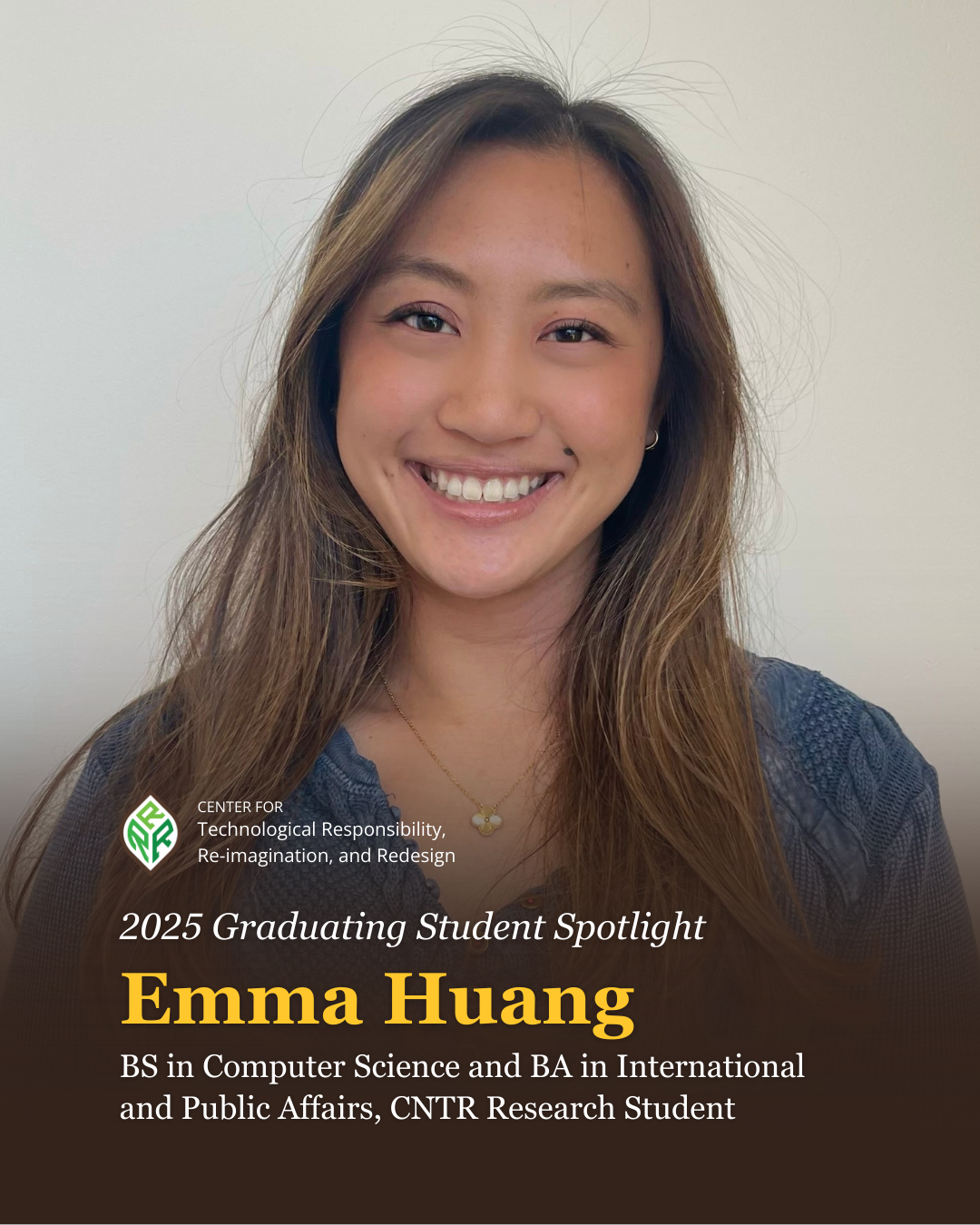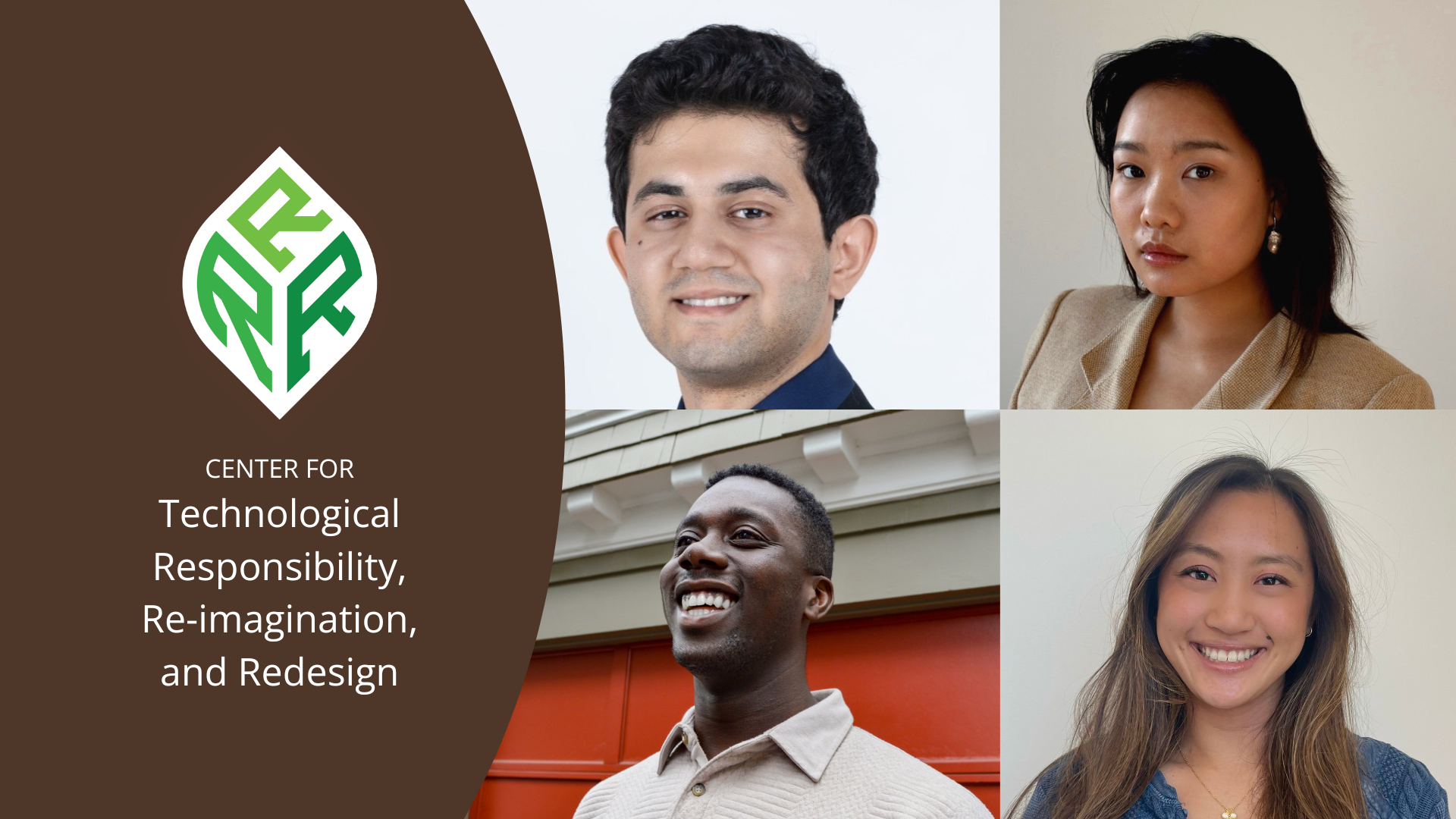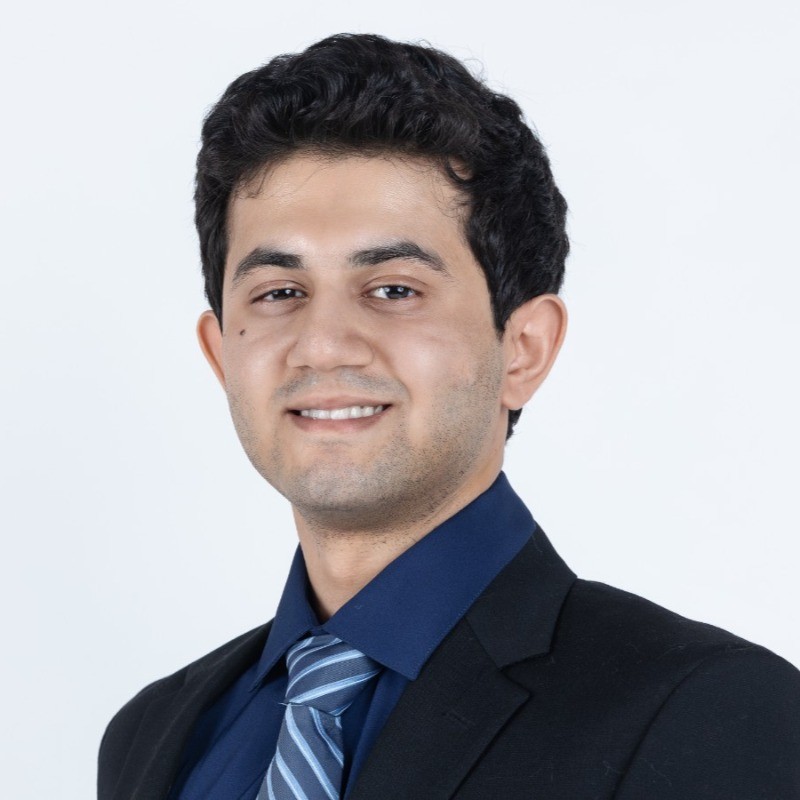 Fields of Interest
Fields of Interest
I’m generally interested in tech policy and regulation, systems thinking, socially responsible computing, climate & energy policy.
Why did you get involved with the Center for Technological Responsibility, Re-imagination, and Redesign (CNTR)?
Working with the CNTR has been a unique opportunity to dive deeper at the intersectionality of my interests, find and foster community in this space at Brown, and to meet mentors and experts like Suresh (Director of CNTR)!
What has been your favorite course at Brown?
The Politics of Regulation, but CS 15 also will always have a place in my heart.
How have your academic interests changed over the course of your time at Brown?
I came into Brown as a transfer student ready to embrace the open-endedness of the Open Curriculum and being at a liberal arts college. I’ve realized that at Brown there is space for all my interests, enjoying a quantitative foundation but also being a social sciences-minded person.
What has been your favorite part of being a student at Brown?
There is a universal culture of humility and curiosity here! Which definitely seeps into how everyone interacts with each other, there’s a sense of authenticity and intentionality.
What experiences outside of the classroom have shaped your time at Brown?
My involvements have felt varied over time, but looking back, it’s quite thematic as I see in some bundles. I.e. CNTR, being an STA for Machine Learning, and being part of the AI team for the SRC Handbook project. Also have had some leadership roles in the Brown Consulting Club, Brown Investment Group, and Brown Womens’ Collective. Overall, I’ve learned that building community takes time, trust, and commitment, and that I thrive being team-oriented.
Who has inspired or mentored you throughout your degree?
I’ve had so many formal advisors (Suresh, my thesis advisor Debbie Gordon, Prof Nitsan Chorev) and informal mentors along the way (both upper and underclassmen!)
What is next for you?
I’ll be working in New York City in equity research!
What advice would you give to incoming students?
Stay open minded, and don’t be afraid to follow up/try again! I got involved with CNTR off of a cold email with Suresh - I initially wanted to join a project of his in a previous semester and wasn’t chosen, but I had followed up with an interest in getting to work with him in the future. The next semester when this opportunity with CNTR came up, that interactions was one of the touchpoints we built upon - now I’ve been involved with CNTR since its inception and part of one of the inaugural projects.


 Fields of Interest
Fields of Interest.png) Fields of Interest
Fields of Interest Fields of Interest
Fields of Interest